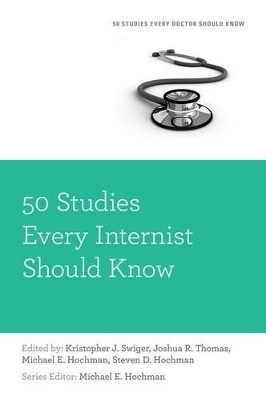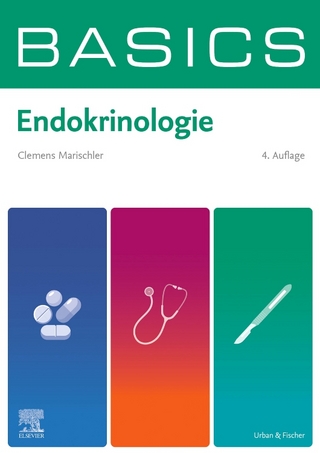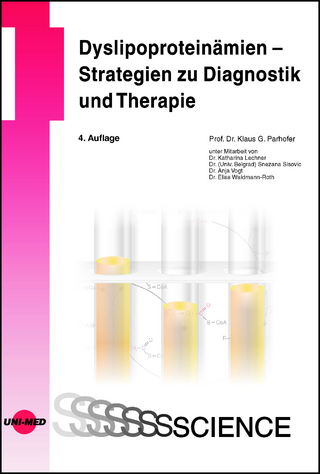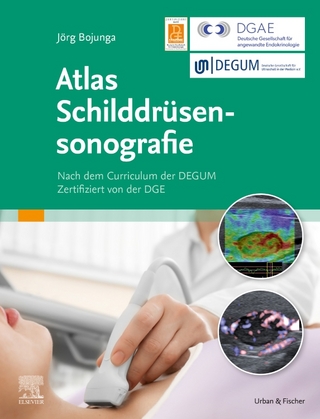
50 Studies Every Internist Should Know
Oxford University Press Inc (Verlag)
978-0-19-934993-7 (ISBN)
50 Studies Every Internist Should Know presents key studies that have shaped the practice of internal medicine. Selected using a rigorous methodology, the studies cover topics including: preventative medicine, endocrinology, hematology and oncology, musculoskeletal diseases, nephrology, gastroenterology, infectious diseases, cardiology, pulmonology, geriatrics and palliative care, and mental health. For each study, a concise summary is presented with an emphasis on the results and limitations of the study, and its implications for practice. An illustrative clinical case concludes each review, followed by brief information on other relevant studies. This book is a must-read for health care professionals and anyone who wants to learn more about the data behind clinical practice.
MH: Medical Director for Innovation, AltaMed Health Services and Robert Wood Johnson Foundation Clinical Scholar, Department of Internal Medicine, University of California, Los Angeles. CNP: Fellow, Division of Cardiology, University of Pennsylvania School of Medicine.
Section 1. Preventive Medicine ; 1. Preventing Diabetes: The Diabetes Prevention Program ; 2. Dietary Approaches to Stop Hypertension (DASH) ; 3. Aspirin for the Primary Prevention of Cardiovascular Disease: The Physicians' Health Study and the Women's Health Study ; 4. Postmenopausal Hormone Therapy: The Women's Health Initiative ; 5. The Cochrane Review of Screening Mammography ; 6. The European Randomized Study of Screening for Prostate Cancer ; 7. Screening for Lung Cancer with Low-Dose Computed Tomography vs. Chest Radiography: The National Lung Screening Trial (NLST) ; Section 2. Endocrinology ; 8. Treating Elevated Blood Sugar Levels in Patients with Type 2 Diabetes: the United Kingdom Prospective Diabetes Study (UKPDS) ; 9. Intensive versus conservative blood sugar control for patients with type 2 diabetes: the ACCORD trial ; 10. Intensive vs. Conventional Glycemic Control in Type 1 Diabetes Mellitus (DCCT) ; 11. Intensive vs. Conservative Blood Pressure Control in Patients with Type 2 Diabetes ; Section 3. Hematology and Oncology ; 12. Choice of Anticoagulant for Prevention of Recurrent Venous Thromboembolism in Patients with Cancer ; 13. Vena Caval Filters in the Prevention of Pulmonary Embolism in Patients with Proximal Deep-Vein Thrombosis ; 14. Phase I Study of Imatinib (STI571) in Patients with Chronic Myelogenous Leukemia ; Section 4. Musculoskeletal Diseases ; 15. Magnetic Resonance Imaging for Low Back Pain ; 16. Early therapy for rheumatoid arthritis: The TICORA Study ; Section 5. Nephrology ; 17. Revascularization vs. Medical Therapy for Renal Artery Stenosis ; 18. Correcting Anemia in Chronic Kidney Disease: The CHOIR Study ; 19. Early versus Late Initiation of Dialysis: The IDEAL Trial ; Section 6. Gastroenterology ; 20. Use of IV Albumin in Patients with Cirrhosis and Spontaneous Bacterial Peritonitis ; 21. Early use of transjugular intrahepatic portosystemic shunt (TIPS) in patients with cirrhosis and variceal bleeding ; Section 7. Infectious Diseases ; 22. Methicillin-Resistant S. aureus Infections among Patients in the Emergency Department ; 23. Antibiotic Therapy in Exacerbations of Chronic Obstructive Pulmonary Disease ; 24. Early versus Delayed Antiretroviral Therapy for Patients with HIV: The NA-ACCORD Study ; Section 8. Cardiology ; 25. Statins in Healthy Patients with an Elevated C-Reactive Protein: The JUPITER Trial ; 26. The Scandinavian Simvastatin Survival Study (4S) ; 27. Choosing Fist-Line Therapy for Hypertension: The ALLHAT Trial ; 28. Rate Control versus Rhythm Control for Atrial Fibrillation: The AFFIRM Trial ; 29. Initial Treatment of Stable Coronary Artery Disease: The COURAGE Trial ; 30. Early Invasive vs. Conservative Management for Unstable Angina or Non-ST-Elevation Myocardial Infarction: The RITA 3 Trial ; 31. MADIT II: Prophylactic Defibrillator Implantation in Patients with Low Ejection Fraction Following Myocardial Infarction ; 32. Captopril in Patients with Left Ventricular Dysfunction after Myocardial Infarction: The SAVE Trial ; 33. Spironolactone in Advanced Heart Failure: The RALES Trial ; 34. The African American Heart Failure Trial (A-HeFT) ; 35. Intraaortic Balloon Support for Myocardial Infarction with Cardiogenic Shock (IABP-SHOCK II) ; Section 9. Pulmonary and Critical Care Medicine ; 36. Intensive versus Conventional Glucose Control in Critically Ill Patients ; 37. Red Cell Transfusion in Critically Ill Patients: The TRICC Trial ; 38. Noninvasive Ventilation for Acute Exacerbations of Chronic Obstructive Pulmonary Disease ; 39. Low Tidal Volume Ventilation in Acute Respiratory Distress Syndrome/Acute Lung Injury ; 40. Comparison of routine vs. on-demand chest radiographs in mechanically-ventilated adults in the intensive care unit ; 41. Early Goal-Directed Therapy in Sepsis ; 42. Dopamine vs. norepinephrine in the treatment of shock ; 43. Daily Interruption of Sedative Infusions in Critically Ill Patients Undergoing Mechanical Ventilation ; 44. A Comparison of Four Methods of Weaning Patients from Mechanical Ventilation ; Section 10. Geriatrics and Palliative Care ; 45. Behavioral versus Pharmacological Treatment for Insomnia in the Elderly ; 46. Treatment of Hypertension in the Elderly ; 47. Use of feeding tubes in patients with dementia ; 48. Early Palliative Care in Non-Small-Cell Lung Cancer ; Section 11. Mental Health ; 49. Initial Treatment of Depression ; 50. Symptom-Triggered vs. Fixed Dose Therapy for Alcohol Withdrawal
| Erscheint lt. Verlag | 14.5.2015 |
|---|---|
| Reihe/Serie | Fifty Studies Every Doctor Should Know |
| Zusatzinfo | 48 illustrations |
| Verlagsort | New York |
| Sprache | englisch |
| Maße | 155 x 231 mm |
| Gewicht | 476 g |
| Themenwelt | Medizinische Fachgebiete ► Innere Medizin ► Endokrinologie |
| Medizin / Pharmazie ► Medizinische Fachgebiete ► Onkologie | |
| Medizin / Pharmazie ► Medizinische Fachgebiete ► Palliativmedizin | |
| Studium ► Querschnittsbereiche ► Infektiologie / Immunologie | |
| Studium ► Querschnittsbereiche ► Prävention / Gesundheitsförderung | |
| ISBN-10 | 0-19-934993-2 / 0199349932 |
| ISBN-13 | 978-0-19-934993-7 / 9780199349937 |
| Zustand | Neuware |
| Haben Sie eine Frage zum Produkt? |
aus dem Bereich


